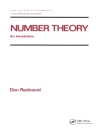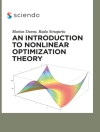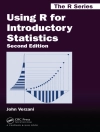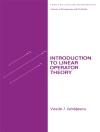Mathematical Physiology provides an introduction into physiology using the tools and perspectives of mathematical modeling and analysis. It describes ways in which mathematical theory may be used to give insights into physiological questions and how physiological questions can in turn lead to new mathematical problems.The book is divided in two parts, the first dealing with the fundamental principles of cell physiology, and the second with the physiology of systems. In the first part, after an introduction to basic biochemistry and enzyme reactions, the authors discuss volume control, the membrane potential, ionic flow through channels, excitability, calcium dynamics, and electrical bursting. This first part concludes with spatial aspects such as synaptic transmission, gap junctions, the linear cable equation, nonlinear wave propagation in neurons, and calcium waves. In the second part, the human body is studied piece by piece, beginning with an introduction to electrocardiology, followed by the physiology of the circulatory system, blood muscle, hormones, and kindeys. Finally, the authors examine the digestive system and the visual system, ending with the inner ear. This book will be of interest to researchers, to graduate students and advanced undergraduate students in applied mathematics who wish to learn how to build and analyze mathematical models and become familiar with new areas of applications, as well as to physiologists interested in learning about theoretical approaches to their work.Mathematical Reviews, 2000: "This is neither a physiology book nor a mathematics book, but it is probably the best book ever written on the interdisciplinary field of mathematical physiology, i.e. mathematics applied to modelling physiological phenomena. The book is highly recommended to anybody interested in mathematical or theoretical physiology."
James Keener & James Sneyd
Mathematical Physiology [PDF ebook]
Mathematical Physiology [PDF ebook]
Achetez cet ebook et obtenez-en 1 de plus GRATUITEMENT !
Langue Anglais ● Format PDF ● ISBN 9780387227061 ● Maison d’édition Springer New York ● Publié 2006 ● Téléchargeable 3 fois ● Devise EUR ● ID 4658481 ● Protection contre la copie Adobe DRM
Nécessite un lecteur de livre électronique compatible DRM












